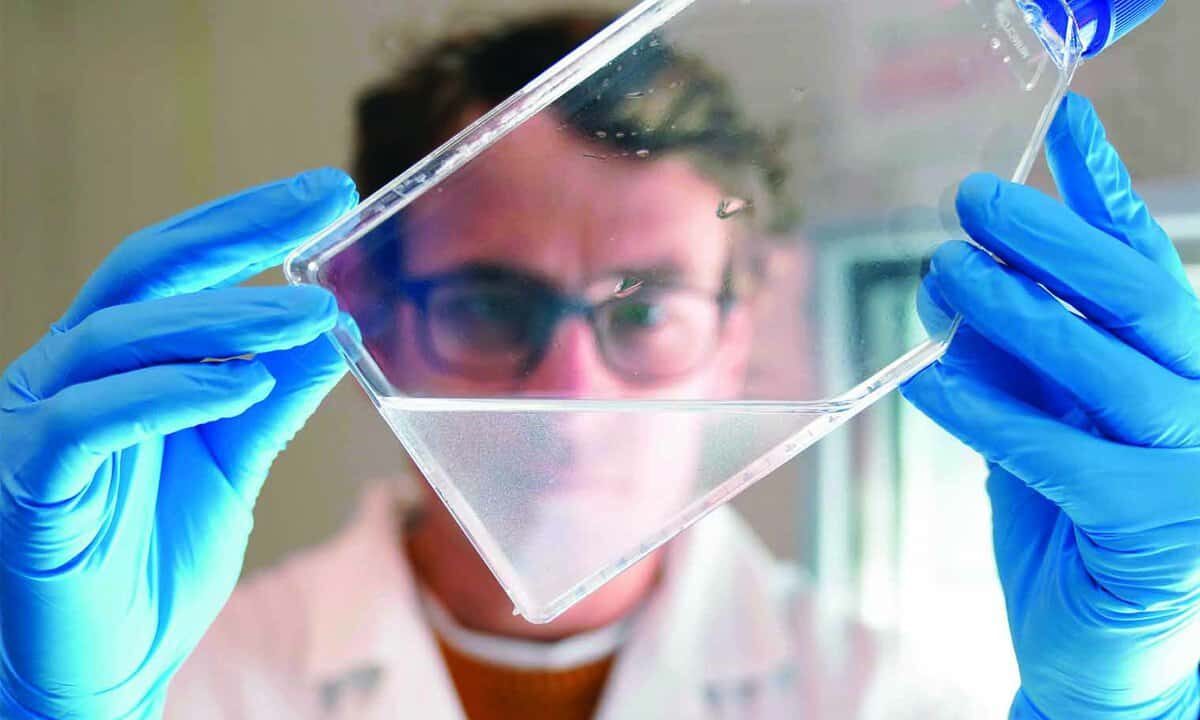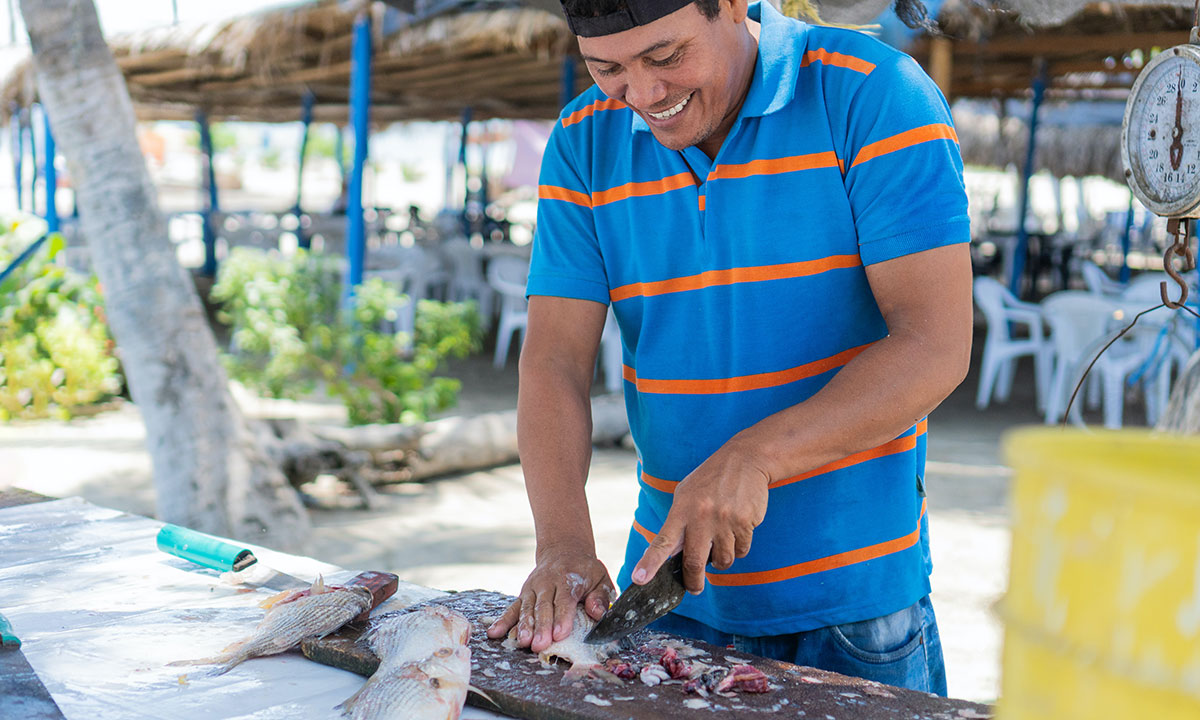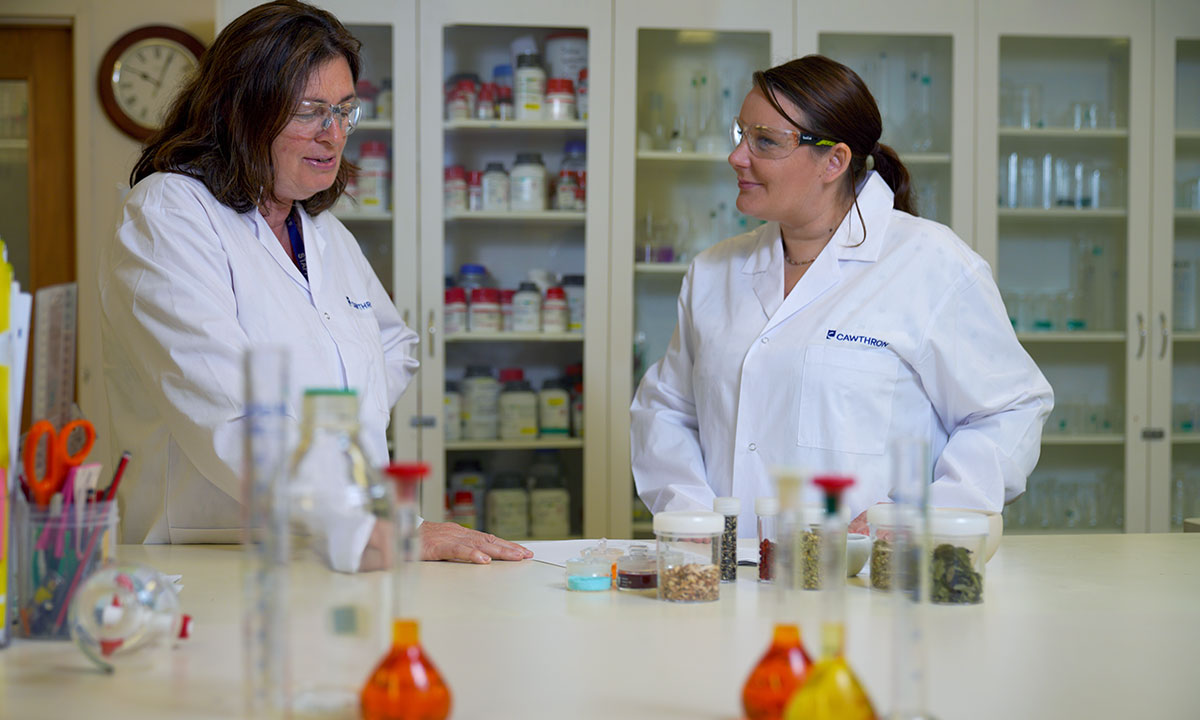Sustainable and nutritious food
Finding new ways of feeding the world and building the resilience of food systems.
Food security is a major global challenge that will be exacerbated by climate change. Cawthron is drawing on its expertise in aquaculture, blue technology and bioactive compound production to find new ways of feeding the world and building the resilience of food systems.
One of our core areas of focus is algae – both microalgae and macroalgae (seaweed) hold huge potential as sources of food and Cawthron is leading or collaborating on several research programmes that hope to realise the potential of algae as a food source.
The first is our collaboration with biotechnology nutrition start-up NewFish and marine engineering firm Kernohan to screen Cawthron Institute’s Culture Collection of Microalgae and identify strains of microalgae that hold potential for the development of protein rich future foods. The next challenge would be to work with Kernohan on scalable production systems produce so we can grow commercially relevant amounts and process it into alternative protein and other ingredients for functional foods. Read more about this exciting research here.
We are also working in partnership with New Zealand research organisations the Riddet Institute at Massey University, Plant & Food Research and the University of Auckland, and Singapore’s Agency for Science, Technology and Research on a project that explores the alternative protein potential of two native New Zealand seaweeds. Read more here.
Another exciting project was our aquaculture knowledge exchange programme between Cawthron aquaculture scientists and officials from the Ministry of Marine Resources (Cook Islands) and the Ministry of Fisheries and Mineral Resources (Kiribati) that aimed to build these nations’ capacity in shellfish hatchery production and standard operating procedures and biosecurity and health and safety best practice. Read more about that programme here.
We’re also working with Māori in New Zealand to support their aquaculture aspirations, at an iwi, hapū and whanau level and with Māori owned businesses. We’re currently supporting Te-Whānau-ā-Apanui, to develop the capability, knowledge, and skills needed to build and operate a world-class shellfish hatchery. Read more here.
Another key component of sustainable and resilient aquaculture production is open ocean marine farming. Cawthron Institute is leading a collaborative, five-year government funded research programme called ‘Ngā Punga o te Moana’ to develop the knowledge and technology required to enable New Zealand’s shellfish and seaweed aquaculture industry to expand offshore. Read more here.
Finally, our advanced understanding of bioactive compounds is being used to support Aotearoa New Zealand’s mussel industry and the health and wellbeing of mussel consumers by exploring the health benefits of Greenshell™ Mussels. The most recent results of these clinical studies have confirmed that consumption of mussels can accelerate muscle recovery following exercise-induced damage and reduce the knee pain experienced by post-menopausal women. Read more here.
This diverse range of world-leading research is already helping to build a sustainable and resilient food system in Aotearoa New Zealand and the Pacific. We hope to build on this success and apply these research outcomes into new initiatives that achieve global impact.
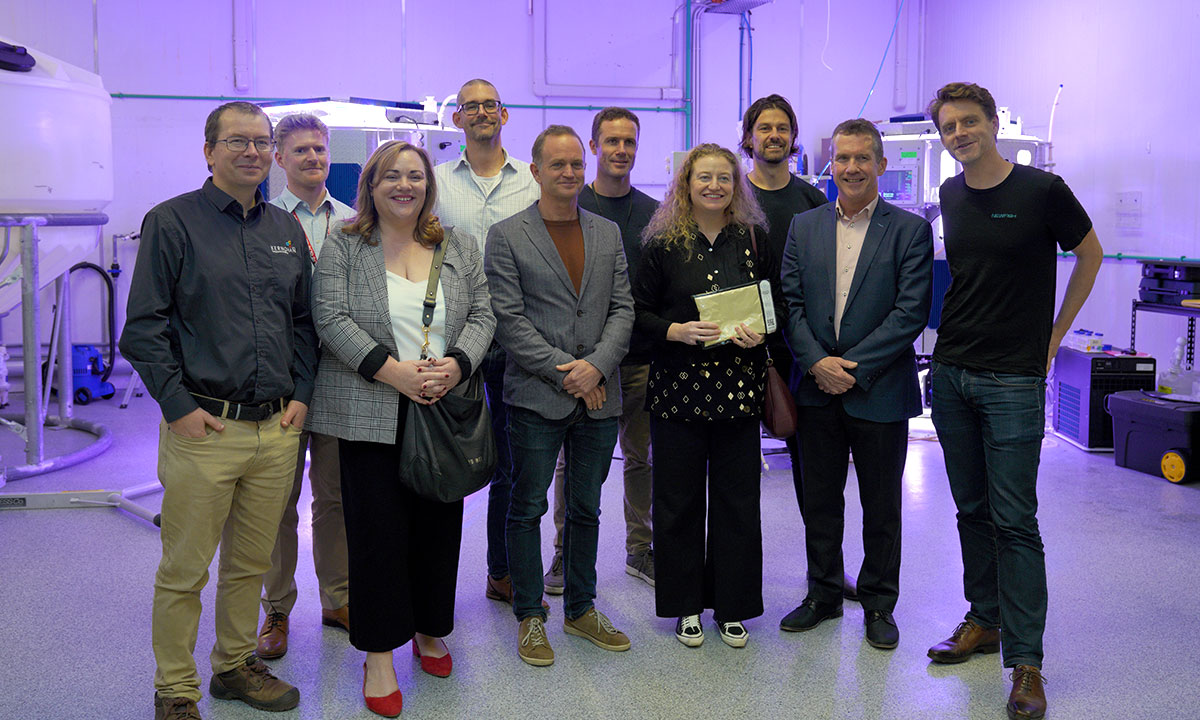
Image: Cawthron Institute. Representatives from Cawthron, Kernohan, and NewFish meet with Minister Rachel Brooking and Nelson MP Rachel Boyack to celebrate the announcement of their future food partnership and the $750,000 government investment in the project through the Ministry for Primary Industries’ Sustainable Food and Fibre Futures fund (SFF Futures).
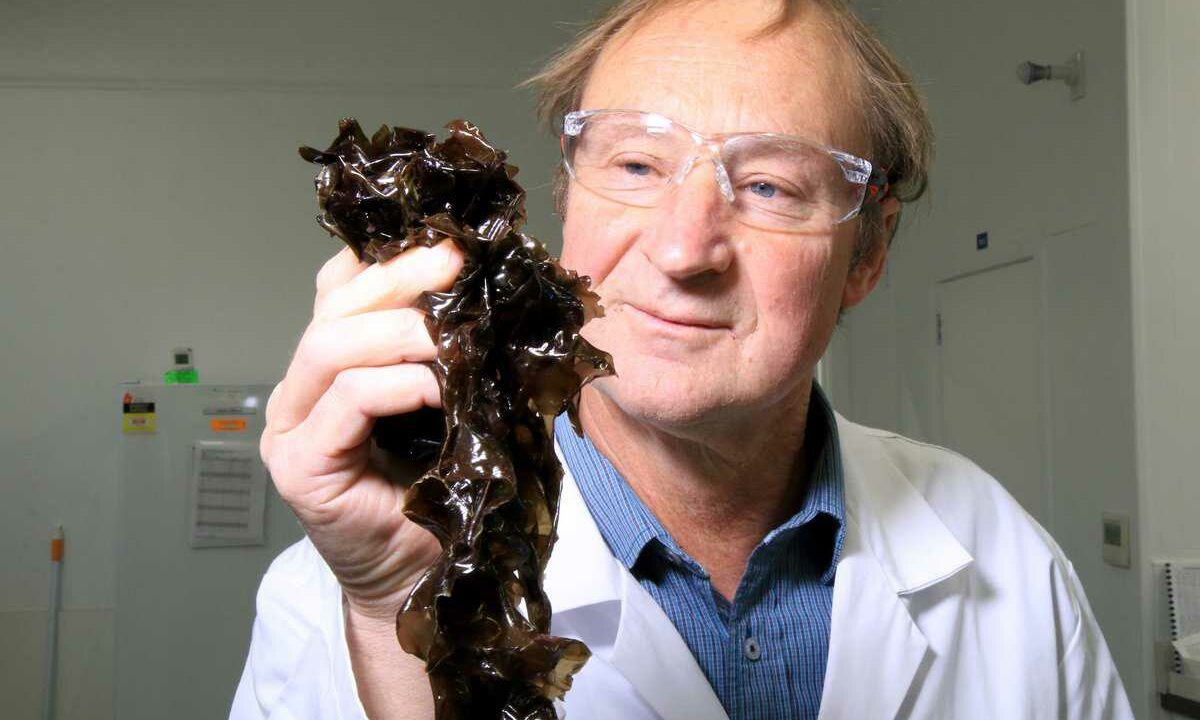
Image: Cawthron Institute. Researcher Tom Wheeler with a sample of New Zealand native seaweed Karengo, currently being explored as an alternative protein source.
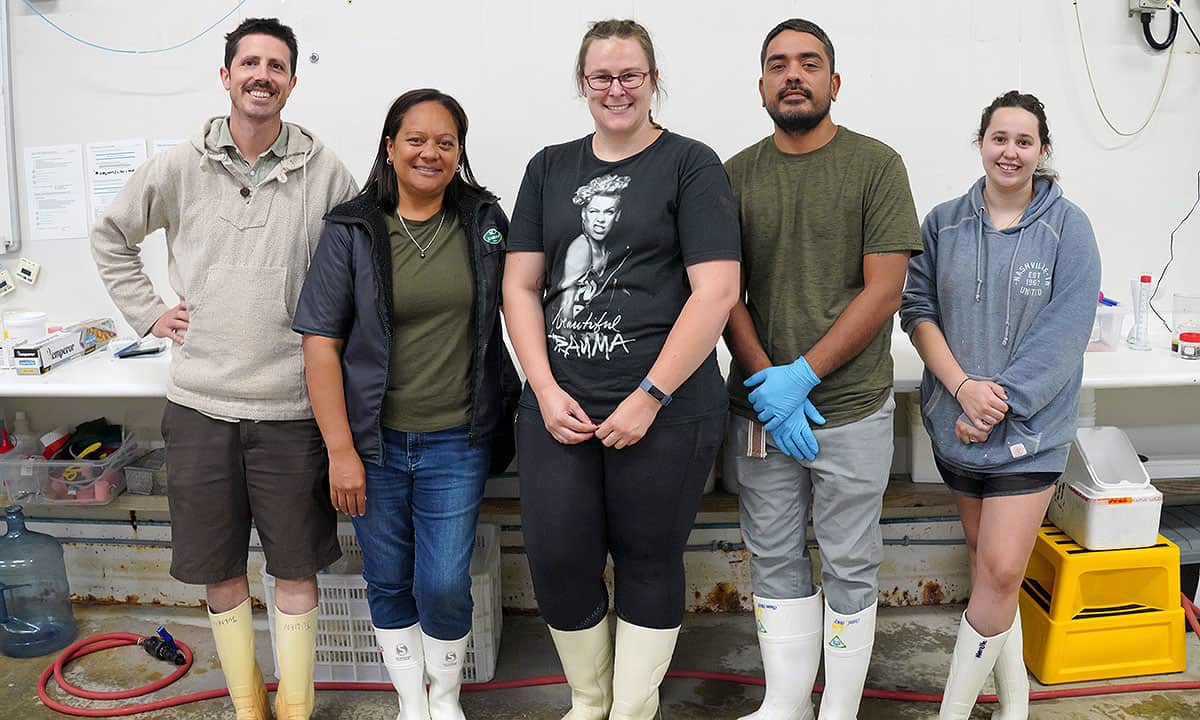
Image: Cawthron Institute. Cawthron researchers support aquaculture expertise in the Pacific. From left, Julien Vignier, Tuaine Turua of the Cook Islands Ministry of Marine Resources, Jordan Elvy, Rennie Reymond of the Ministry of Fisheries and Mineral Resources Development in Kiribati, and Nerelle Gundry.
Other projects that are supporting thriving communities…
Climate Resilient Pacific Communities
Science solutions that support Pacific Island communities as they face the challenges of climate change, biodiversity loss and food security.
Contact us
Do you have a query about investing in science solutions that support thriving communities? Get in touch with our team using the form below.
